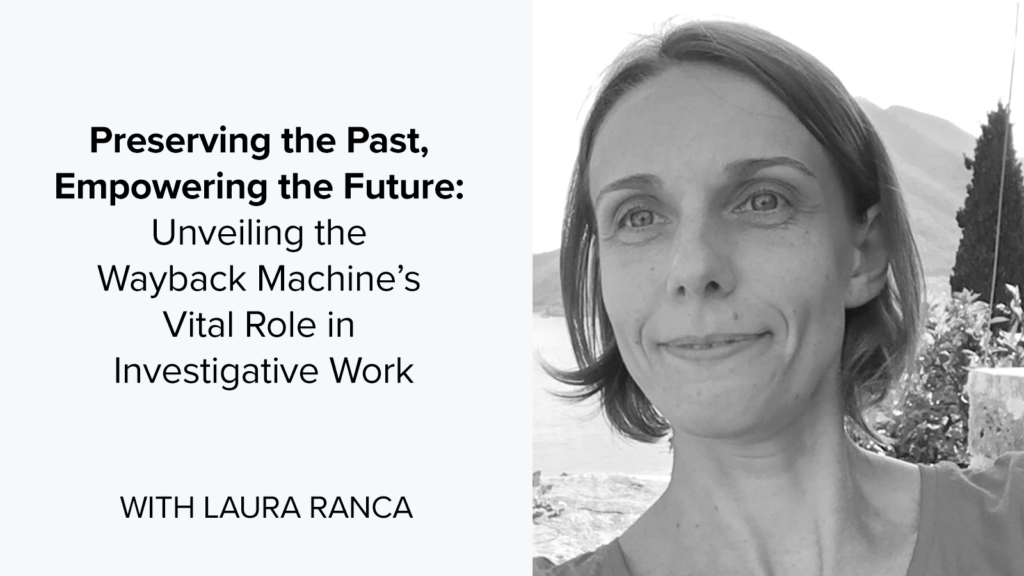
A precious tool. That’s how Laura Ranca describes the Wayback Machine in her work.
As a researcher at the Berlin-based organization Tactical Tech and its Exposing the Invisible Project, she helps people use technology to inform, educate and advance causes. Ranca trains journalists, human rights activists, scholars and everyday citizens to use the internet to investigate and gather evidence.
The Wayback Machine has been particularly useful in finding and retrieving lost websites, said Ranca. She also makes sure materials she produces are preserved online so future researchers can build on her work. As people try to document how the public is interacting with technology, the material stored by the Internet Archive has been essential to investigators, Ranca said.
“We face the challenge of websites and webpages being modified, altered or intentionally taken down. Sometimes it’s to hide something that was previously published, but is no longer relevant, or it now has maybe a different connotation than was intended,” Ranca said. “For us, this is very valuable to access historical records and to save different web pages and resources online using the Wayback Machine.”
When researching environmental issues, Ranca has discovered material that reflects missed early warning signs. Finding 20-year-old mining reports, video footage or other documentation affecting the climate can be important evidence in making the case for climate action. These items need to be protected, Ranca said, and the Wayback Machine provides that security. Ranca and the team at Exposing the Invisible conduct workshops on how to navigate the Wayback Machine, as well as train-the-trainer sessions on investigative skills more broadly. She also created guides on how to use Internet Archive content, available as open source through Creative Commons.
I am a faithful donor to the Internet Archive and as a scholar I’ve found the “Wayback Machine” absolutely invaluable.
I’m curious to know more about what (if any) effort is made to “ring fence” or isolate content that is unacceptable because of its political content or because of its potential to cause offense. I’ve certainly never had any direct experience that leads me to suspect that anything is “missing.” But colleagues I respect tell me I’m naive!
Can anyone help clear this up?